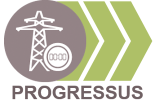Company Description:
Technische Hochschule Köln – abbreviated as TH Köln – University of Applied Sciences – sees itself as University of Technology, Arts, Sciences. TH Köln’s subject range includes the fields of Applied Natural Sciences; Architecture and Construction; Information and Communication; Computer Science; Engineering; Culture; Society and Social Sciences as well as Business Studies. More than 90 degree programs are offered as full-time programs or in some cases as career-integrated or part time programs. As a place where research based learning and academic education take place, the university nurtures prospective scholars through cooperative dissertations. Annually, about 5,000 students take up their studies at TH Köln. Overall 26,000 students from about 120 different countries along with 430 professors and 1,400 staff employ their potential.
Research mainly focuses on future-related issues, including climate change, energy supply, health and food safety as well as demographic changes. While developing solution strategies for the most important questions of our time, researchers offer their professional expertise in interdisciplinary interaction. At the same time, they closely collaborate with local, national and international cooperation partners, including 290 international institutions of higher education. The university offers its researchers an attractive sphere of activity. The quality seal “HR Excellence in Research” awarded by the European Commission certifies that TH Köln meets international standards in the field of human resources development.
Role and main tasks within the project:
THK will develop algorithms that allows the charging box to determine the state of the grid to which it is connected by measurements of electrical parameters as voltage, current voltage angle, and power factor. Algorithms will be developed that allow grid operation at its limits both taking into account maximum transformer and line charge and maximum allowed voltage drop. Various scenarios and grids are evaluated, modelled, and accuracy is validated in the laboratory. Measurements are carried out in a real test area. In a further step, optimization routines will be developed taking into account communication between different charging boxes within one low voltage grid in order to maximize charging capacity whilst guaranteeing grid friendliness.
Next, charging boxes are optimized together with the overall home energy system including e.g. heat pump and photovoltaic systems. The aim is to integrate the charging boxes into an overall home-management system. The optimization will be twofold, the optimization of the home energy system itself and the optimization of the overall low voltage grid state. Setting up a test environment with smart meter gateway and testing the connection and the algorithm. To test the algorithms, a laboratory environment is set up. This contains of at least one smart meter gateway and other components of a "smart home". Among other things, the data communication and the interaction between the charging box and the home-management system can be tested in the laboratory. The goal here is to demonstrate the compatibility of grid management and home management system.


